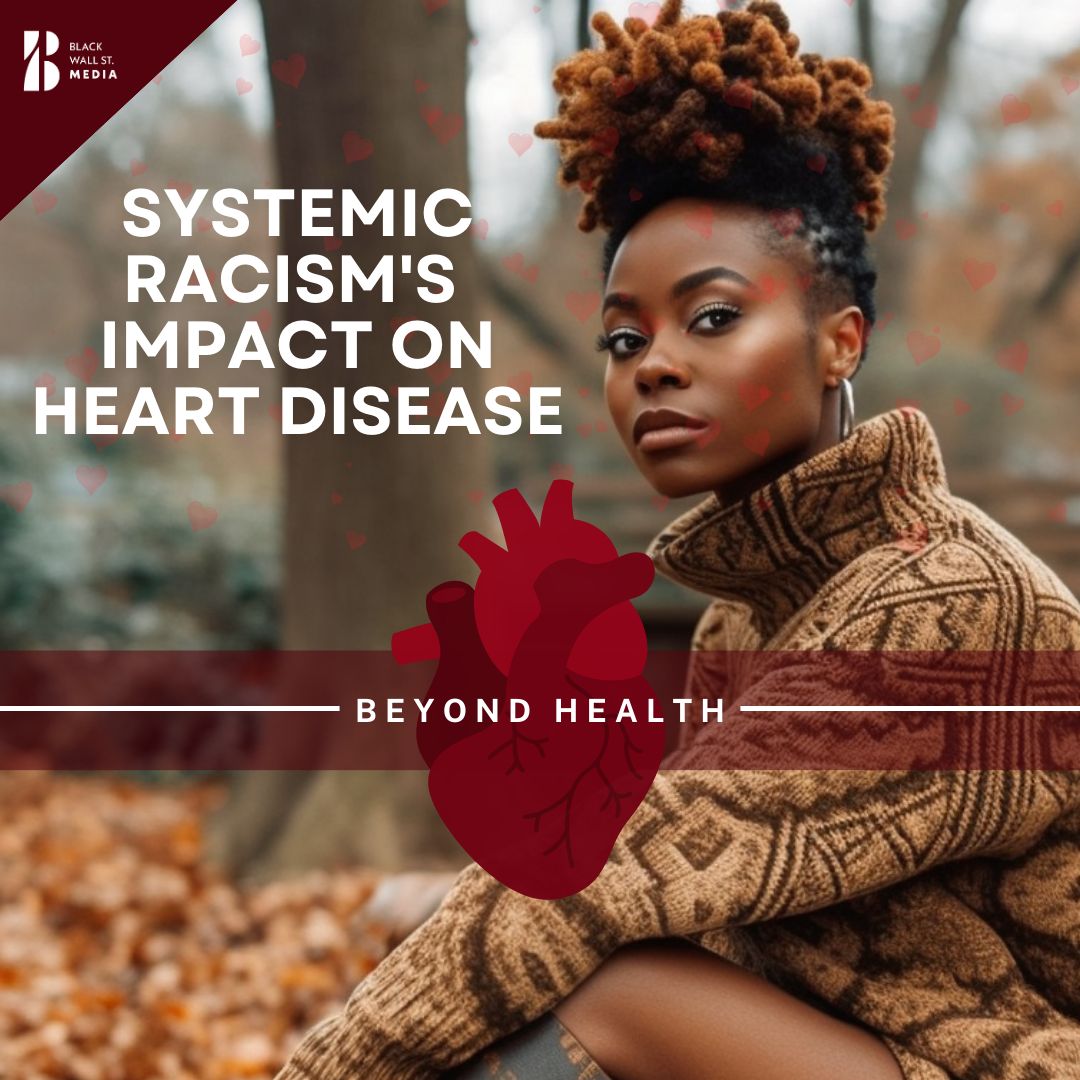HEALTH
Systemic Racism's Impact on Heart Disease
“Unraveling the Complexities: Why do Black individuals face a higher risk of heart disease? From genetics to systemic issues, explore the factors contributing to this health disparity. Learn how to advocate for your heart health.”
Black Wall St. MediaContributor

“Navigating Heart Health Disparities: Understanding, Addressing, and Advocating for Change in Black Communities”
Heart disease continues to be the leading cause of death in the United States, a health crisis compounded by a troubling and often unspoken disparity disproportionately affecting Black individuals.
Despite comprising only 12% of the population, Black people account for at least 22% of all heart disease-related deaths, underscoring a significant and deeply rooted health inequality.
This comprehensive exploration seeks to unravel the intricate factors contributing to this disparity while providing insights into the importance of self-advocacy for improved heart health.
Genetic Predispositions: Unraveling the Complex Tapestry:
Genetics indeed play a crucial role in heart disease risk, with specific cardiovascular conditions more prevalent among individuals of West African ancestry.
Understanding these genetic factors is essential for tailoring preventive measures. Conditions like transthyretin amyloidosis and familial hypercholesterolemia are linked to particular genetic variants found more commonly in Black populations.
However, it’s crucial to recognize that genetics represent just one facet of the multifaceted challenge.
Systemic Racism’s Profound Impact: Beyond the Surface:
Delving deeper, structural, systemic, and institutional racism emerge as fundamental drivers of health disparities, including those evident in cardiovascular health. Social determinants of health, such as income inequality, access to resources, and community safety, significantly influence heart disease risk. Black individuals often face greater social disadvantage, creating a direct and lasting impact on their cardiovascular health.
Healthcare Disparities: Unveiling Unequal Treatment:
The stark reality of racial bias within the healthcare system further exacerbates heart health disparities.
Studies reveal disheartening statistics—Black patients from marginalized neighborhoods are less likely to receive critical procedures compared to their white counterparts.
Implicit bias among healthcare providers can significantly impact treatment decisions, underscoring the urgent need for self-advocacy and seeking empathetic care.
Taking Control of Heart Health: Empowering Individuals:
While systemic changes are imperative, individuals can take proactive steps to protect their heart health.
Initiating open and honest conversations about family health history, scheduling regular check-ups, and understanding personal risk factors are crucial first steps.
Additionally, actively seeking out healthcare providers who possess a nuanced understanding of and commitment to addressing racial disparities can enhance the quality of care received.
The Role of Advocacy: Empowering Through Knowledge:
Advocating for oneself within the complex healthcare system is an empowering journey.
Finding a healthcare provider who shares similar backgrounds and experiences may contribute to receiving more empathetic and culturally competent care.
Preparing for medical appointments, seeking second opinions, and enlisting the support of friends and family can further empower individuals to navigate the intricacies of the healthcare system.
Addressing heart health disparities in the Black community demands a multifaceted approach that includes systemic changes and individual advocacy.
While challenges persist, being proactive about one’s health, fostering open communication with healthcare providers, and actively participating in advocacy efforts are essential steps toward mitigating the impact of heart disease in Black populations.
By unraveling the layers of this complex issue, we can collectively work towards a future where health disparities are eradicated, and all individuals have equitable access to heart health resources and care.
Black Wall St. MediaContributor










